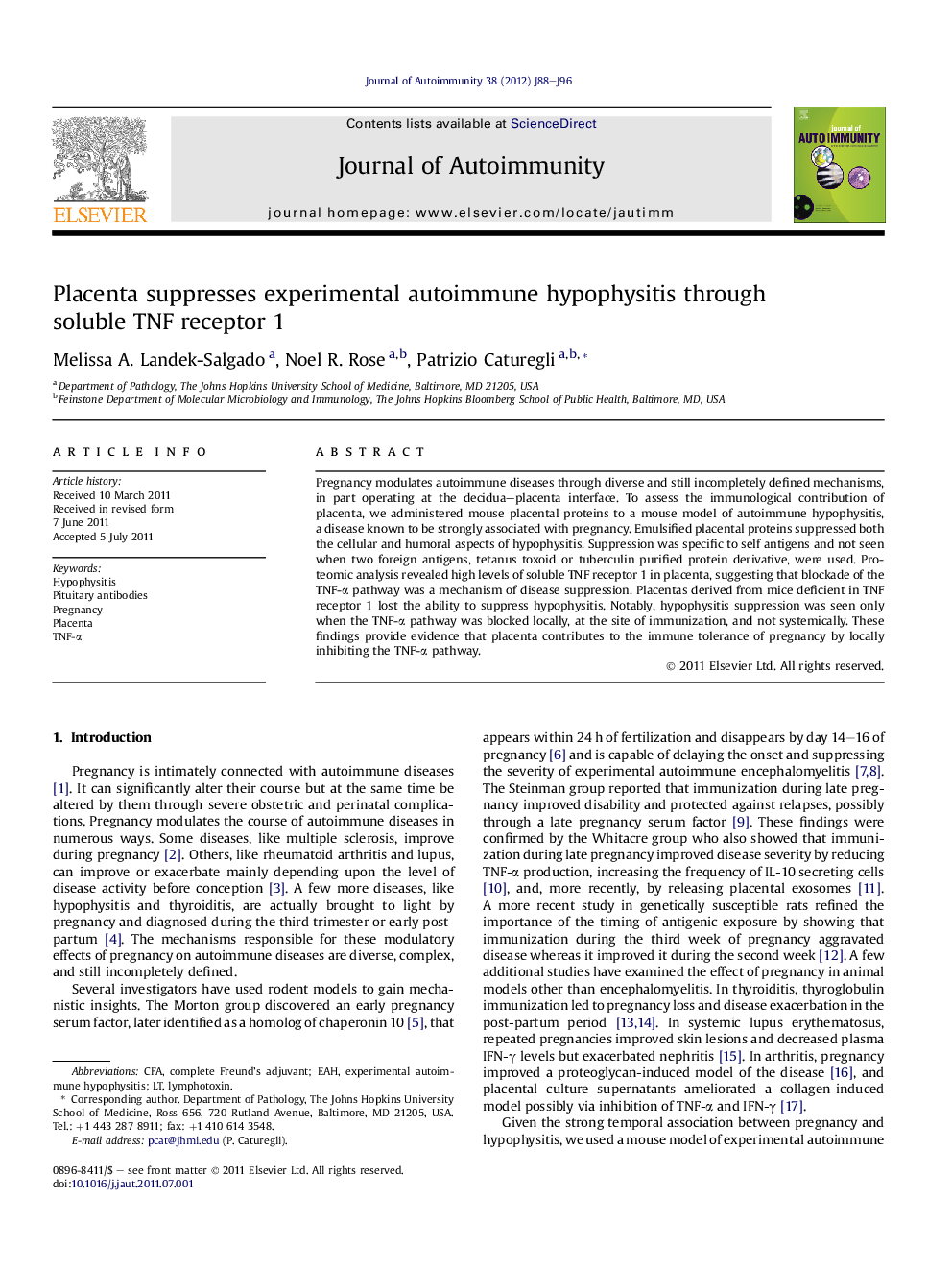| Article ID | Journal | Published Year | Pages | File Type |
|---|---|---|---|---|
| 6119391 | Journal of Autoimmunity | 2012 | 9 Pages |
Abstract
Pregnancy modulates autoimmune diseases through diverse and still incompletely defined mechanisms, in part operating at the decidua-placenta interface. To assess the immunological contribution of placenta, we administered mouse placental proteins to a mouse model of autoimmune hypophysitis, a disease known to be strongly associated with pregnancy. Emulsified placental proteins suppressed both the cellular and humoral aspects of hypophysitis. Suppression was specific to self antigens and not seen when two foreign antigens, tetanus toxoid or tuberculin purified protein derivative, were used. Proteomic analysis revealed high levels of soluble TNF receptor 1 in placenta, suggesting that blockade of the TNF-α pathway was a mechanism of disease suppression. Placentas derived from mice deficient in TNF receptor 1 lost the ability to suppress hypophysitis. Notably, hypophysitis suppression was seen only when the TNF-α pathway was blocked locally, at the site of immunization, and not systemically. These findings provide evidence that placenta contributes to the immune tolerance of pregnancy by locally inhibiting the TNF-α pathway.
Related Topics
Life Sciences
Immunology and Microbiology
Immunology
Authors
Melissa A. Landek-Salgado, Noel R. Rose, Patrizio Caturegli,
